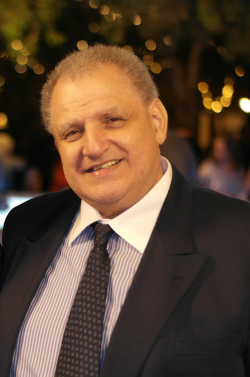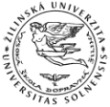Tutorials
Market Segmentation
In market segmentation a heterogeneous population of customers is represented as a collection of homogeneous subgroups where the customers in each cluster have similar needs and similar views of how to worth a product. Several clustering methods have been proposed some of which use inappropriate statistical assumptions with resultant deficiencies in the performance of the analyses. Latent class methodology stands out as one of the major breakthroughs in conjoint segmentation. Segmentation models, especially in the area of latent class regression procedures, not only overcome the limitations of aggregate analysis and a-priori segmentation but also allow for a probabilistic classification of customers into segments and simultaneous estimation of a generalized linear regression model within each segment.
Specifically, the tutorial will cover:
- Review of the different market segmentation techniques found in literature
- Latent class models for ordinal data using the proportional odds model
- The EM algorithm that maximizes the likelihood
- Application that investigates customer preferences for second hand cars
- Simulation study that investigates how the number of subjects and number of segments affect the performance of the EM algorithm
- Simulation study that investigates the performance of several information criteria in determining the correct number of segments
Liberato Camilleri studied Mathematics and Statistics at the University of Malta. He received his PhD degree in Applied Statistics in 2005 from Lancaster University. His research specialization areas are related to statistical models, which include Generalized Linear models, Latent Class models, Multilevel models, Item Response models, Generalized Estimating Equations and Survival models. Liberato has co-authored three books and around 150 publications with local and foreign researchers in several fields of application including neural networks, operations research, market research, education, SEBD, health and atmospheric chemistry. His most valued publications include SEBD in Maltese Schools - A Multilevel model; Bias of Standard Errors in Latent Class Model Applications using Newton-Raphson and EM Algorithms; Latent Class Mixture models for analyzing rating responses; Models for Market Segmentation; Assessing the Performance of Information Criteria to determine the optimal number of segments in a Latent class framework; Standard error estimation in EM applications related to Latent Class models; Latent Class Analysis for segmenting preferences of investment bonds (best paper award).
Liberato has participated in a number of funded projects– CONSENT funded by FP7, RESPIRA financed through the Italia-Malta 2007-2013 fund; Digital and Video Game usage in Malta commissioned by the University of Malta in collaboration with the Malta Communication Authority (MCA); Evaluation of School based Prevention Programmes commissioned by the National Commission on the Abuse of Drugs, Alcohol and Other Dependencies; Manual of Standardized Tests for Dyslexia commissioned by the Directorate for Quality and Standards in Education, University of Malta and the MATSEC Board; Trends in Food Consumption by Maltese Adults funded by Malta Standards Authority (MSA); He was also commissioned to write a number of national reports by the Maltese Ministry of Education and Employment which include considerable statistical analysis - PIRLS 2011 and 2015 reports; TIMSS 2011, 2015 and 2019 reports; European Survey on Language Competences 2010 report; PISA 2009, 2015, 2018 reports; and ICCS 2009 and 2016 reports. Liberato is also an associate editor of the local science journal XJENZA.

Maths and Physics Building
Faculty of Science
University of Malta
Msida, Malta
AR Learning
The fourth industrial revolution aka Industry 4.0 has impacted the Higher Educational (HE) sector in many ways. Opportunities and challenges such as emerging educational technologies, students with highly developed digital skills entering HE, curriculum design for both existing and emerging disciplines just to name a few need to be addressed in teaching & learning related research preparing the HE sector.
This workshop focusses on research addressing the opportunities and challenges of creating innovative learning spaces for the 21st century.
In particular, we will be discussing
- The new learner characteristics
- Opportunities and challenges for the education sector
- Creating innovative learning spaces for the 21st century
- Augmented Reality (AR) in education
- An overview
- Technologies
- Opportunities
- Case Study
Tutorial Proposals
Tutorials for ISC'2021 can be proposed in the following three categories:
- T1- Introductory Tutorials
- T2- State of the Art Tutorials
- T3- Software and Modelware Tutorials
Tutorial proposals should be emailed to Philippe.Geril@eurosis.org, by indicating the type of tutorial you would like to suggest. (T1, T2 or T3) before JANUARY 15, 2021. A confirmation email will be sent to verify that the proposal was received.
Examples of topic areas for tutorial proposals should mirror the topics in the list of conference themes and workshops.
Proposals must be submitted electronically via e-mail, as plain text or in PDF. The tutorial submission should be contained within five pages. Various parts of the proposal for accepted tutorials may be edited for incorporation in the Advance Program.
When preparing a tutorial submission, please consider the suggested template (to be linked later).
Financial Terms
An accepted conference university tutor receives a free conference registration plus a free publication of his tutorial paper. University tutorial presenters will receive also an honorarium depending on the number of attendees registering specifically for the tutorial outside the conference registrants. The precise amount of the honorarium will be determined immediately after the early registration deadline.
Tutorials that have less than 8 early registrants will face the risk of cancellation.
Tutorial Selection Committee
The proposals received will be reviewed by the Selection Committee to ensure a high quality and appropriate mix for the conference. The goal of the Selection Committee is to provide a diverse set of tutorials that attract a large interest among the broad segments within the diverse simulation community.





